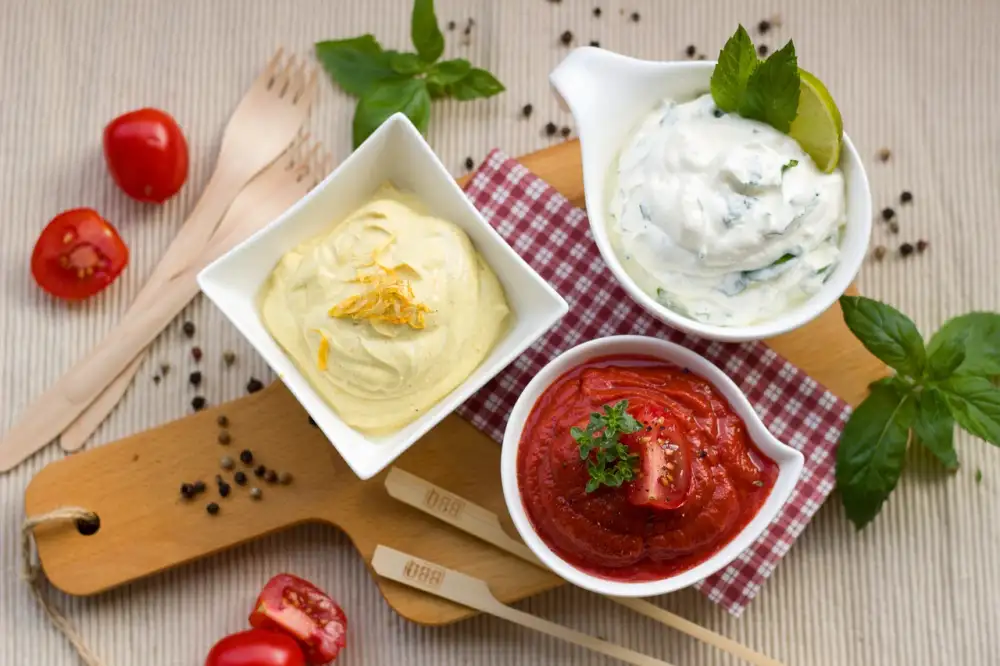Delicious and Nutritious: Exploring the World of Vegetarian Curry

- Health Benefits of Vegetarian Curry
- Traditional Ingredients Used in Vegetarian Curry
- Popular Variations of Vegetarian Curry
- Step-by-Step Recipe for Making Vegetarian Curry
- Tips for Enhancing the Flavor of Vegetarian Curry
- Serving Suggestions and Accompaniments for Vegetarian Curry
- Exploring Regional Vegetarian Curry Dishes
Vegetarian curry is a flavorful and aromatic dish that has gained popularity worldwide. It is a versatile and satisfying option for those who follow a vegetarian or vegan diet, as it combines an array of vegetables, spices, and herbs to create a delicious and nutritious meal. Whether you are new to vegetarian cuisine or a seasoned enthusiast, exploring the world of vegetarian curry will open your taste buds to a whole new level of culinary delight. From mild and creamy curries to spicy and tangy ones, there is a wide range of flavors to discover. So let's dive into the enticing world of vegetarian curry and savor its delectable offerings.
Health Benefits of Vegetarian Curry
Vegetarian curry not only tantalizes taste buds, but it also offers numerous health benefits. Packed with a variety of vegetables, legumes, and spices, this dish is a powerhouse of nutrients. The abundance of fiber in vegetarian curry aids digestion and promotes a healthy gut. Additionally, the combination of vegetables provides essential vitamins and minerals that support overall well-being. The spices used in curry, such as turmeric and cumin, contain antioxidants that help reduce inflammation and boost the immune system. With its nutritious ingredients, vegetarian curry is a flavorful way to nourish your body.
Traditional Ingredients Used in Vegetarian Curry
Vegetarian curry is a flavorful dish that showcases a variety of traditional ingredients. These ingredients not only add depth and complexity to the curry but also provide essential nutrients. Some common ingredients found in vegetarian curry include vegetables like potatoes, carrots, peas, and cauliflower. These vegetables not only contribute to the overall taste but also provide important vitamins and minerals.
In addition to vegetables, legumes such as chickpeas, lentils, and kidney beans are often used in vegetarian curry. These legumes are an excellent source of protein and fiber, making the curry a filling and nutritious meal option.
Spices play a crucial role in vegetarian curry, adding layers of flavor and aroma. Common spices used include cumin, coriander, turmeric, ginger, garlic, and chili powder. These spices not only enhance the taste but also offer various health benefits such as anti-inflammatory properties and aiding digestion.
To create a rich and creamy texture in vegetarian curry, coconut milk or yogurt is often added. Coconut milk adds a subtle sweetness while yogurt provides a tangy flavor. Both ingredients help balance out the spiciness of the curry.
Overall, the traditional ingredients used in vegetarian curry come together harmoniously to create a delicious and nutritious dish that can be enjoyed by everyone.
Popular Variations of Vegetarian Curry
Vegetarian curry is a versatile dish that can be found in various forms across different cultures. Here are some popular variations of vegetarian curry that you must try:
1. Thai Green Curry: Made with a paste of green chilies, lemongrass, and Thai basil, this curry is known for its vibrant color and spicy flavor. It is typically made with vegetables like eggplant, bell peppers, and bamboo shoots.
2. Indian Chana Masala: This Punjabi dish features chickpeas cooked in a flavorful blend of spices such as cumin, coriander, and turmeric. It is often served with rice or naan bread.
3. Japanese Vegetable Curry: A milder version compared to other curries, Japanese vegetable curry includes ingredients like potatoes, carrots, onions, and sometimes even fruits like apples. It is usually served over steamed rice.
4. Malaysian Laksa: This spicy noodle soup combines coconut milk with a variety of vegetables such as bean sprouts, tofu puffs, and eggplant. It is flavored with spices like turmeric and chili paste.
5. Moroccan Vegetable Tagine: Tagine refers to both the dish itself and the clay pot it's cooked in. This slow-cooked stew features an array of vegetables like carrots, zucchini, and potatoes along with aromatic spices such as cumin and cinnamon.
These are just a few examples of the many delicious variations of vegetarian curry out there. Each one offers its own unique blend of flavors and ingredients that will surely tantalize your taste buds. So go ahead and explore the world of vegetarian curry to discover your favorite variation!
Step-by-Step Recipe for Making Vegetarian Curry
1. Heat oil in a large pan over medium heat. Add chopped onions and cook until golden brown.
2. Add minced garlic, ginger, and spices like cumin, coriander, turmeric, and chili powder. Stir well to release the flavors.
3. Add diced vegetables such as carrots, potatoes, bell peppers, and cauliflower. Cook for a few minutes until slightly tender.
4. Pour in coconut milk or vegetable broth to create a creamy base for the curry.
5. Add canned tomatoes or tomato puree for tanginess and depth of flavor.
6. Season with salt and pepper to taste.
7. Simmer the curry on low heat for about 20 minutes or until the vegetables are cooked through.
8. Optional: For added protein and texture, you can add tofu or chickpeas at this stage.
9. Garnish with fresh cilantro leaves before serving.
This simple recipe can be customized by adding your favorite vegetables or adjusting the spice level according to your preference. Enjoy this flavorful vegetarian curry with steamed rice or warm naan bread for a complete meal that will satisfy both your taste buds and nutritional needs!
Tips for Enhancing the Flavor of Vegetarian Curry
1. Toast and grind your own spices: Toasting whole spices like cumin, coriander, and cardamom seeds before grinding them releases their essential oils and intensifies their flavors.
2. Use fresh herbs: Adding a handful of freshly chopped cilantro or mint leaves at the end of cooking adds a burst of freshness and aroma to your curry.
3. Experiment with different types of chili peppers: Whether you prefer mild or spicy, there are various chili peppers available that can add heat and depth to your curry. Try using jalapenos, Thai bird's eye chilies, or even dried red chilies for different levels of spiciness.
4. Incorporate tangy ingredients: To balance the richness of the curry, add a splash of lime juice or a dollop of yogurt towards the end. This will bring a tangy element that enhances the overall flavor profile.
5. Don't forget about sweetness: A touch of sweetness can elevate the taste of your curry. Consider adding a spoonful of honey, brown sugar, or grated jaggery to balance out the spices.
6. Allow time for flavors to meld: Letting your curry sit for some time after cooking allows all the flavors to mingle and develop further. Reheating it the next day often results in an even more flavorful dish.
7. Garnish with fried onions or nuts: Adding crispy fried onions or toasted nuts like cashews or almonds on top not only adds texture but also enhances the overall taste experience.
By following these tips, you can take your vegetarian curry from delicious to extraordinary by creating layers of complex flavors that will leave everyone craving for more!
Serving Suggestions and Accompaniments for Vegetarian Curry
When it comes to serving vegetarian curry, there are plenty of options to consider. One classic way to enjoy this flavorful dish is with a side of steamed rice or naan bread. The fluffy texture of rice or the warm, chewy naan perfectly complements the rich and aromatic curry.
If you're looking for a lighter option, try serving your vegetarian curry with quinoa or couscous. These grains add a nutty flavor and provide an extra dose of protein and fiber.
To add some freshness to your meal, consider serving a side salad alongside your vegetarian curry. A simple mix of fresh greens, cucumber, tomatoes, and herbs dressed with a tangy vinaigrette can balance out the richness of the curry.
For those who enjoy contrasting flavors, pickles and chutneys are excellent accompaniments to vegetarian curry. The tanginess and spiciness of these condiments can elevate the overall taste experience.
If you're hosting a gathering or want to create a more elaborate meal, consider serving some traditional Indian snacks like samosas or pakoras as appetizers before diving into the main course of vegetarian curry. These crispy bites will surely impress your guests.
Lastly, don't forget about beverages! Pairing your vegetarian curry with a refreshing mango lassi or a glass of chilled Indian beer can enhance the overall dining experience.
Remember that these suggestions are just starting points; feel free to experiment and find your own favorite combinations that complement the flavors of your vegetarian curry.
Exploring Regional Vegetarian Curry Dishes
Vegetarian curry is a versatile dish that has been adapted and enjoyed in various regions around the world. Each region adds its own unique twist to this flavorful dish, resulting in a wide array of regional vegetarian curry dishes.
In India, where curry originated, you'll find dishes like Chana Masala, made with chickpeas and a blend of aromatic spices. In South India, Sambar, a tangy lentil-based curry, is a popular choice. Moving to Thailand, you'll discover the vibrant flavors of Thai Green Curry, which features an assortment of vegetables cooked in a spicy coconut milk base.
In Malaysia and Indonesia, Rendang is a beloved vegetarian curry dish. It is slow-cooked with an array of spices and coconut milk until it becomes rich and flavorful. In Japan, there's Kare Raisu, a Japanese-style curry made with potatoes, carrots, and other vegetables served over rice.
Heading to the Caribbean islands, you'll encounter Jamaican Ital Stew. This hearty stew includes ingredients like sweet potatoes, plantains, and callaloo leaves simmered in coconut milk. And let's not forget about Ethiopia's Misir Wot - a spicy red lentil stew seasoned with berbere spice blend.
These are just a few examples of the diverse regional vegetarian curry dishes that exist worldwide. Exploring these dishes allows us to appreciate the different flavors and culinary traditions from around the globe. So why not embark on a culinary journey and savor the world through vegetarian curry?
In conclusion, vegetarian curry is a delightful and flavorful dish that not only satisfies the taste buds but also offers numerous health benefits. With its rich blend of spices and traditional ingredients, it provides a nutritious and satisfying meal option for vegetarians and non-vegetarians alike. Whether you prefer a mild or spicy variation, there are endless possibilities to explore in the world of vegetarian curry. So why not embrace the deliciousness of vegetarian curry and embark on a culinary journey that will leave you craving for more?
Published: 04. 12. 2023
Category: Food



